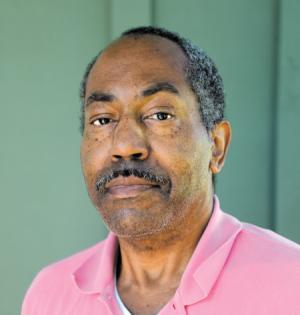Public consumption of marijuana is subject to a civil violation and fine
On a recent trip to Seattle, I was a little surprised to see how prevalent commercial marijuana is. Advertisements for marijuana emporiums are throughout many newspapers.
Shops selling marijuana are dotted throughout the city's downtown area and its numerous districts. Purchasing is simple. All one needs is ID.
Sales staff is knowledgeable and helps customers select products to suit their needs and tastes. Products range from edible baked goods and chocolates in various strengths, to smokeable pot in a variety of potencies. There are also marijuana-derived oils that contain no THC, marijuana's intoxicating ingredient.
Want more body-high than head-high? Try this. Need to freshen your breath and get a buzz? This works. Got a craving for chocolate with a little something extra? This will satisfy you.
Whether you're looking to get high or looking for pain relief, there's a marijuana product that could be just right for you.
The National Organization for Reform of Marijuana Laws was founded in 1970 funded by $5,000 from the Playboy Foundation. Since then, the organization has played a central role in the cannabis decriminalization movement.
By the middle of the 1970s, Playboy owner Hugh Hefner's generous financial support through the Playboy Foundation set NORML apart from other advocacy groups, making it the premier decriminalization organization. At one point, Hefner was donating $100,000 a year to NORML. The organization has a large grassroots network with 135 chapters and more than 550 lawyers.
According to NORML, this country's war on drugs places great emphasis on arresting people for smoking marijuana. In the last decade, 6.5 million Americans have been arrested on marijuana charges, a greater number than the entire populations of Alaska, Delaware, the District of Columbia, Montana, North Dakota, South Dakota, Vermont and Wyoming combined.
In 2012, state and local law enforcement arrested more than 740,000 people for marijuana violations.
The overwhelming majority of those charged with marijuana violations in 2012, more than 650,000, were charged with simple possession. The remaining 91,000 individuals were charged for sale/manufacture, an FBI category which includes marijuana grown for personal use or purely medical purposes.
The FBI statistics indicate that one marijuana smoker is arrested every 48 seconds in this country.
Taken together, the total number of marijuana arrests for 2012 far exceeded the combined number of arrests for violent crimes, including murder, manslaughter, forcible rape, robbery and aggravated assault.
The ultimate goal of NORML and The NORML Foundation is to end the criminal prohibition of marijuana.
"We do not believe otherwise law-abiding citizens who smoke marijuana should be arrested and treated like criminals. Adults should be permitted to smoke marijuana in private. Federal prohibition of marijuana should be abolished and the states should be encouraged to experiment with different models of decriminalization," the organization states on its website.
States that have legalized marijuana include Alaska, California, Colorado, District of Columbia, Maine, Massachusetts, Nevada, Oregon and Washington. Only Oregon lists marijuana as a Schedule II drug, which includes all opiates and cocoa-based drugs.
Possession for personal use
In Delaware, Maryland and Virginia, marijuana is a Schedule I drug, and penalties for possession vary in each state. In all states the use of marijuana by minors, in public, or in a moving vehicle is a criminal offense.
Legislation was approved in 2015 amending penalties for the possession of up to one ounce to a civil penalty, punishable by no more than a $100 fine.
In Maryland, simple possession without the intent to distribute less than 10 grams is a civil offense carrying a fine not exceeding $100 for first-time offenders, $250 for second-time offenders, and $500 for third or subsequent offenders.
In Virginia, possession of marijuana is a misdemeanor punishable by no more than 30 days in jail and/or a fine of up to $500 for a first offense. A second or subsequent offense is punishable with up to 12 months in jail and/or up to a $2,500 fine. Possession of less than one-half ounce of marijuana is simple possession.
On the West Coast, marijuana laws are much less severe. In Washington, adult possession, in private, of up to one ounce of cannabis for personal use as well as possession of up to 16 ounces of marijuana-infused product in solid form, and 72 ounces of marijuana-infused product in liquid form is not subject to criminal or civil penalty.
Public consumption of marijuana is subject to a civil violation and fine. Possession of one ounce to 40 grams is a misdemeanor, punishable by a mandatory minimum of 24 hours and maximum of 90 days in jail. A mandatory fine of $250 is imposed for the first offense, and a mandatory fine of $500 is imposed for the second or subsequent violations.
In Oregon, if at home there is no fine or penalty for possession of 8 ounces or less of homegrown marijuana.
However, use of any marijuana in public is punishable by a maximum fine of $1,000. Possession of more than 1 to 2 ounces of marijuana is punishable by a fine of up to $1,000; possession of more than 4 ounces of marijuana is punishable by up to 1 year in prison and a fine of up to $6,250.
In California, a 2016 law allows adults over 21 years of age who are not participating in the state's medical cannabis program to legally grow up to six plants, including all of the harvest from those plants. and to possess personal use quantities of cannabis up to one ounce of flower and/or up to eight grams of concentrates.
Possession of more than one ounce is a misdemeanor punishable by up to 6 months imprisonment and/or a fine up to $500.
If the amount possessed is one ounce or less but the person is 18 years of age or older and the possession occurred on school grounds, the person faces up to 10 days' imprisonment and/or a fine up to $500. If the offender was younger than 18 years of age, then the offense is punishable by a fine up to $250 for the first offense and a fine up to $500 or commitment to a detention center for up to 10 days.
Henry J. Evans Jr. is a former newspaper reporter living near Milton.















































